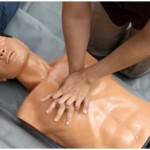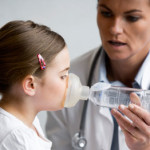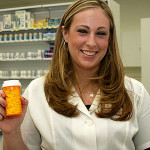Syphilis is a sexually transmitted disease. The syphilis is a result of a bacterial infection of the genital tract by the bacterium Treponema pallidum. It can be passed from one person to another during direct sexual contact with a syphilis lesion that involves vaginal, oral or anal sex. There is another way to pass syphilis and that is from an infected mother to her baby during pregnancy and result in stillbirth or serious birth defects.
Incubation & Symptoms
 Syphilis can be acute and chronic infectious disease. The incubation period is 12-30 days. The first symptom is a chancre, followed by slight fever and other constitutional symptoms (this is the primary syphilis), it is followed by a skin eruption of various appearances with mucous patches and generalized lymphadenopathy (secondary syphilis), and subsequently by the formation of gummas, cellular infiltration, and functional abnormalities usually resulting from cardiovascular and central nervous lesions.
Syphilis can be acute and chronic infectious disease. The incubation period is 12-30 days. The first symptom is a chancre, followed by slight fever and other constitutional symptoms (this is the primary syphilis), it is followed by a skin eruption of various appearances with mucous patches and generalized lymphadenopathy (secondary syphilis), and subsequently by the formation of gummas, cellular infiltration, and functional abnormalities usually resulting from cardiovascular and central nervous lesions.
The first signs of syphilis
When we talk about symptoms, first we have to know that symptom is something the patient senses and describes, while a sign is something that other people or doctor can notice. People that have syphilis do not have any signs of infections and there are chances that they do not know that they have syphilis. In other people the signs are very mild, but even if the signs of infection go away on their own, the germs are still alive. After many years this germs can cause serious health problems.
The first primary stage is the formation of the chancre. Syphilis is highly contagious at this stage. This primary stage can last one to five weeks. It can be transmitted from any contact with one of the ulcers, which are teeming with spirochetes. The use of condoms may not help in preventing transmission if the ulcer is outside of the vagina or on the scrotum. If the ulcer is in the mouth, merely kissing the infected individual can spread syphilis. Without treatment, the early infection resolves on its own in most women.
Sore on the penis in men may be the first sign of syphilis. In women, the first sign may be a sore around or inside the vagina. The sore may not be noticed because syphilis sores doesn’t hurt. Three to six weeks has to pass in order sores to go away.
25% of cases will proceed to the secondary stage of syphilis, which lasts four to six weeks. The secondary stage includes hair loss; white patches in the nose, mouth, and vagina; fever; headaches; and a skin rash. In some cases there are lesions on the genitals that look like genital warts, but are caused by spirochetes rather than the wart virus. These skin rash and wart-like lesions are very contagious. The localization of the rash is on the palms of the hands, and it can be transmitted by a casual contact. Other signs of syphilis include fever, sore throat and swollen lymph glands.
The third stage is no longer contagious and it is the final stage. This stage of the disease involves damage of the brain, heart as well as extensive damage to the internal organs which can lead to death.
Tests
A simple blood test can tell for sure if a person has syphilis. If the doctor wants to see how far the syphilis has spread the patient can run some other tests. The syphilis has several manifestations which makes the laboratory testing an important aspect of diagnosis. The serological testing is mostly used as an approach in the laboratory diagnosis of syphilis.
Treatment options for Syphilis
One of the most effective treatments in the primary and secondary stage of syphilis is the treatment with a single dose of penicillin. If the person is allergic to penicillin another antibiotic can be prescribed. In later stages of syphilis the treatment is with three penicillin injections given at weekly intervals. Some of the antibiotics used to treat syphilis can affect the methods of contraception that contain estrogen and progesterone. Tell your nurse or doctor if you use these methods of contraception so they can advise you on additional contraceptive methods.
Prevention
- Regular medical care
- Evaluation of the risk, catching syphilis
- Regular test for the disease
- Abstaining from sexual activity
- Mutually monogamous sexual relationship
- Latex condoms
- Proper use of condoms






















